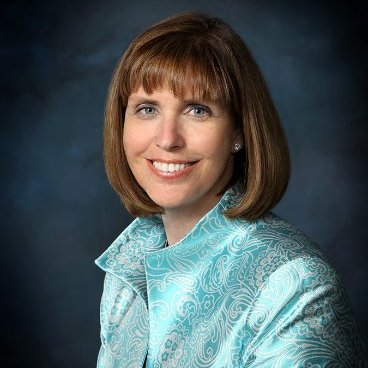
By Susan Michel, an EO New Jersey member, and the founder and CEO of Glen Eagle
The influx of Millennials into the workplace is providing today’s entrepreneur with a number of new challenges and opportunities. As you add more and more Millennials to your team, you need to be prepared to answer the question: Are you ready for a more participatory workforce with strong needs to both grow and contribute?
If your answer is “Yes,” then you understand just how influential Millennials can be in creating a more competitive and inquisitive workplace. As a group, the 75 million people between the ages of 19-35[i], are digital natives and yearn for opportunities to learn and grow on the job. What’s more, this group of individuals have their fingers on the pulse of the consumer marketplace, with US$1 trillion[ii] in buying power. Right behind them are the Gen Zs, born since 1996, who will account for 40% of all consumers by 2020.[iii]
Millennials are also worth cultivating as they are becoming the best-educated generation of our time. In fact, 18% of Millennials between the ages of 25-34 have at least a bachelor’s degree, compared to 10.6% of Baby Boomers over 55; and 9% already hold a professional or graduate degree, slightly short of 11.5% of Baby Boomers.iv.
They are a talent pool with a lot to offer, and it is up to us as business leaders to successfully recruit, engage and retain them. This will mean shedding the hierarchical mindset that many companies currently use and instead conveying a vision for each of our companies that welcomes a diversity of ideas and the opportunity to be part of a team.
According to Gallup, Millennials look closely at what a prospective job will offer in terms of professional growth, learning and advancement— more than any other generation. They also scrutinize us, their prospective employers, to ensure that they will have a quality manager and management team.v
As entrepreneurs, we must embrace this dynamic and design a workplace that accommodates their hunger for learning and sharing. Toward this end, here are some of the lessons we have learned at Glen Eagle in our ongoing development of a creative multigenerational workplace:
Leverage Technology to Build Client Relationships
A strong relationship with our clients is critical for any relationship-based business. And technology is the key to freeing our employees up to deliver the intelligence, research and revenue-generating ideas that provide value to clients and customers.
It almost goes without saying that the Millennials—and the Gen Zs behind them—are especially skilled at technology. We have made it a point to make sure we have Millennial employees on each team reviewing any new technology we are considering. The cross learning in both directions, older employee to younger and vice versa, has paid large dividends while substantially enhancing our technological capabilities.
Creating cross-generational teams can also be valuable when the Millennial employees are the older group. This summer, we hired an outstanding high school graduate, headed to her freshman year at Wharton, as an intern. She immediately became a creative and productive resource on a variety of issues, from researching software to upgrading our website, and even designing a website logo for a new business we are launching.
We paired her with an older Millennial executive and together they worked on one of the most important initiatives at our firm, a new client-facing hybrid technology and human service model.
Create an Experience, Not Just a Job
It’s crucial to provide a robust, meaningful experience in the workplace. In particular, younger people want to enjoy their work and feel fulfilled doing it. A recent study by Deloitte showed that 44% of all Millennials would be willing to leave their current employer due to a perceived lack of leadership-skill development and feelings of being overlooked, compounded by larger issues around work/life balance, the desire for flexibility, and a conflict of valuesvi.
Give employees the opportunity at staff meetings and during one-on-one conversations to make proposals. At Glen Eagle, if an employee proposes an idea or concept that has promise, we encourage them to create a pilot. The opportunity to present and test their ideas is a positive learning experience in itself. We have found that even when the pilot does not show enough promise to become a permanent implementation that the learning and knowledge gain contributes in a very positive manner to company moral and culture.
This approach was summarized by one of our interns who commented, “Glen Eagle sees the value in different ideas, opinions and background. The fact that I could make an impact was remarkable, and this real-life experience has prepared me for a better academic career.”
In conclusion, entrepreneurs and Millennials share a passion for learning and growth. Let’s seize this powerful moment to channel that into growth for each of our companies.
Susan Michel is an EO New Jersey member, and the founder and CEO of Glen Eagle, an award-winning financial services firm based in Princeton, New Jersey. Offering both advisory and broker dealer services, Glen Eagle takes an educational, holistic approach to meeting its clients’ long-term goals.
- i. Pew Research Center, April 25, 2015 “Millennials overtake Baby Boomers as America’s largest generation”
- ii. Boston Consulting Group, January 15, 2014 “How Millennials Are Changing the Face of Marketing Forever”
- iii. CMO, 15 Mind-Blowing Stats About Generation Z, June 12, 2015
- iv. http://www.nytimes.com/2012/02/24/education/census-finds-bachelors-degrees-at-record-level.html?_r=0
- v. https://hbr.org/2016/05/what-millennials-want-from-a-new-job
- vi. http://www2.deloitte.com/global/en/pages/about-deloitte/articles/millennialsurvey.html
Categories: Best Practices Company Culture Hiring LEADERSHIP
